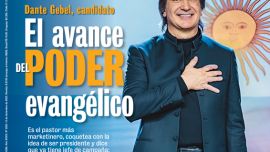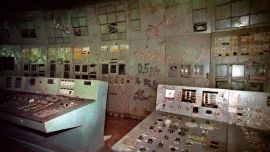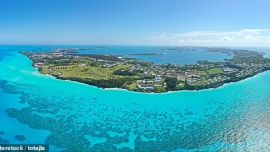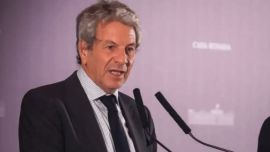President Mauricio Macri’s friendly relationship with his Brazilian counterpart, Michel Temer, will lose some of its value next weekend when Brazil goes to the polls for a highly unpredictable election, one that is casting a new shadow of uncertainty over the relationship between the both countries – especially on economic grounds.
With Argentina’s GDP tipped to contract by two percent this year, and with its population suffering from a sharp depreciation of the peso and double-digit inflation, the government has vowed to do all it can to lift the economy out of recession. Yet the path ahead looks far from assured.
Brazil, its giant neighbour and main trading partner, faces its own uncertainty too, with the election very much up for grabs following the ban on popular former president Luiz Inácio Lula da Silva’s candidacy. The absence of Lula – who was leading the polls prior to his jailing and subsequent suspension from the race – has left a huge question mark over the identity of Brazil’s next president, with outspoken far-right candidate Jair Bolsonaro leading the latest polls with 28 percent, followed by Workers’ Party (PT) leftist and Lula surrogate, Fernando Haddad, with 16 percent. Trailing behind is centre-left candidate Ciro Gomes at around 12 percent, with business-friendly ex-São Paulo governor Geraldo Alckmin on eight percent.
A new government in Brazil will mean changes for the Macri administration and for Argentina. Although some candidates have offered little detail on economic policy, this could come in the form of pushing for closer ties on trade or through choosing to boost domestic industries such as automobile and vehicle manufacturing, moves which could harm the local economy.
Nonetheless, some experts say, there’s light at the end of the road. Since months of recession ended in the middle of 2017, Brazil’s economy has slowly recovered, with GDP now expected to grow by two percent next year.
That’s good news for the Argentina’s own stuttering economy – which is hoping to increase its exports, which are now more competitive following the steep devaluation of the peso.
“Argentine exports to Brazil are now growing as the neighbouring country improves its economy. But there’s much economic uncertainty [at the moment] as the markets have doubts about most of the candidates,” Marcelo Elizondo, the head of the DNI consultancy firm, told the Times. “Our exports have room to grow though, especially the automobile sector.”
TRADE DEFICIT
Brazil is the main destination for local exports, while Argentina is the third-biggest buyer of Brazilian goods. Illustrating its dominance as a theme, the auto sector accounts for almost 45 percent of the trade between both countries, according to the latest figures from the INDEC national statistics bureau.
A trade deficit of US$4.2 billion, in Brazil’s favour, was registered between the two in the first eight months of the year, 19.3 percent less than the same period in 2017. The drop can be explained by an 18.2 percent (US$7.2 billion) improvement in exports and the 0.9 percent (US$11.5 billion) growth of imports, lower than previous.
According to experts reached by the Times, the trade balance will improve by about 45 percent this year, with 2018 likely ending with deficit of US$4 billion – half the record US$8.1 billion registered last year. Still, there’s a long way to go. Brazil now accounts for 6.3 percent of the Argentine exports, way down from the 12 percent registered a decade ago.
Of the roughly 850,000 companies registered in Argentina, only 2,610 currently export goods and services to Brazil, with most of the commercial flow coming between large companies that export to themselves. While Brazil has tripled its overall imports since 2000, Argentine exports have lagged behind, failing to keep up the pace.
“Brazil was severely hit by the 2015-2016 economic crisis and that affected our exports severely. At the same time, Argentina opened up to trade and Brazil started increasing its exports,” Marcos Muñiz, a foreign trade analyst at the Abeceb consultancy firm told the Times. “If Brazil continues to recover, future perspectives are positive.”
POTENTIAL
Due to its significance in the trade balance, the auto sector has the highest potential to grow with a new presidency in Brazil. Vehicle sales from Argentina have risen 38 percent so far this year, due to a larger demand from the neighbouring country, and new models are currently being manufactured in Argentina.
Nevertheless, there’s an open discussion between the two countries on the trade rules for vehicles. The current deal, which expires next year, says that Argentina can import US$1.50 of Brazilian vehicles for every US$1 that it exports. Many vehicle manufacturers, however, are currently in violation of that deal, importing more from Brazil than they are supposed to.
“It was a political commitment that isn’t being fulfilled. Brazil is concentrating on production and shipping as much as it can here. Companies find it cheaper to produce there, as there’s a larger market and labour costs are lower,” said Lisandro Mondino, a foreign trade expert and Conicet doctoral fellow.
“We have similar production schemes with Brazil and our trade outside the Mercosur bloc is parallel. We could supply the world markets by working together, but that’s not happening right now.”
MERCOSUR
Macri and Temer’s relationship has helped the two nations remain close, with the duo also helping to reset the Mercosur trade bloc’s political alignment. Both presidents have sought to use that shift to their advantage too, attempting to give a push over the last two years to negotiations between the Mercosur and the European Union over a free-trade accord, with both Brazil and Argentina hosting summits in a bid to finalise the longdelayed negotiations that first started in 1995.
Yet despite those advantages, negotiators on both sides have sticking points as they go through the fine-print details. Despite repeated attempts to set a final deadline for the deal, there’s still resistance from the EU to opening access for some Mercosur food exports, with the bloc asking for a larger quota. Meanwhile, there’s fear inside the Mercosur about opening up the economy to EU-manufactured goods.
Brazil’s Foreign Minister Aloysio Nunes Ferreira and his Uruguayan counterpart, Rodolfo Nin Novoa, recently acknowledged that negotiations were once again blocked. With Brazil’s next president due to take office in January, 2019, in just three months time, talks between the blocs face the risk of being derailed again, a fact that may be worsened by Argentina’s own election in 2019 and in various EU countries the same year.
“Brazil has lost its push for a deal with the upcoming elections, while Europe is now focused on Brexit and there are many governments there against the dea,” said Elizondo. “The only viable options now are signing a low-ambition deal or failing to reach an agreement. [After all,] the big issues from the negotiations are still under debate.”
























Comments